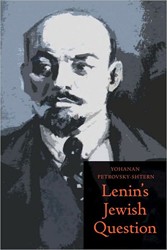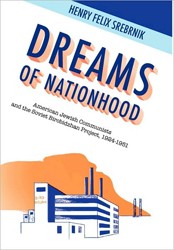Rabbi Jonathan Porath journeyed to the Soviet Union and post – Soviet Russia 175 times between 1965 and 2019. What began as a Hebrew University student’s interest in the Russian language and his James Bond – like image of Russia developed into a lifelong commitment to Soviet Jewry.
As a young man, Porath was asked to serve as a United Synagogue Youth (USY) leader, taking small select groups of American high school students on numerous missions to the Soviet Union. Their professed aim was to visit as tourists, but they secretly hoped to connect with Soviet Jews. They encountered an isolated Jewish population who lived in fear of strangers. Nearly seven decades of Soviet rule had all but stamped out their religion. Rabbis with aged and dwindling congregations had to remain apolitical; government-backed ritual directors reported to the authorities; and spies and traitors were always a threat. Many Jews were not aware of their heritage or were otherwise afraid to admit to it. They ate matzah on Passover, but they had no understanding of the Exodus. When Porath and his group gave subtle signs of their Judaism — like making small Hebrew bibles visible in their back pockets, for example, or showing tzitzit under their shirts — one such contingent approached. Porath and the USY students supplied these brave, curious Jews with Jewish objects of their own.
In the 1980s, after acting as a pulpit rabbi in the US — just like his father and grandfather before him — Porath and his family made aliyah to Israel. And when the Soviet Union collapsed, Porath’s Russian experiences served him well. He became a valued member of the American Jewish Joint Distribution Committee’s work to rebuild Jewish life in Russian communities. Porath was inspired by Elie Wiesel’s Jews of Silence, which recounts a yearly, state-sanctioned Simchat Torah celebration at the Moscow synagogue — an event that drew thousands of Jews. The rabbi later forged a reverential friendship with Wiesel, who encouraged him to chronicle his Russian journeys and write this memoir. Over the years, Porath always assured his fellow Jews that they were not alone and not forgotten. His efforts reached Soviet Jews, Israeli olim (immigrants) in his Jerusalem neighborhood, and then later those Jews who remained in the post – Soviet Union.
Here We Are All Jews is a highly personal collection of Porath’s experiences, covering fifty years of visits to big cities, tiny enclaves, and far-flung regions of Siberia and Georgia, and Ukraine. He recalls forming relationships with religious leaders, government officials, students, refuseniks, the young and old, and practicing and secular Jews — all while seeking to revive the Jewish spirit and religion. Rabbi Porath borrowed the title of his book from a conversation he had with a group of Ukrainian school children. In 1992, he asked them if they liked the state-run school they were in the previous year, or if they preferred the Jewish school they were now attending. “Here,” they replied. “Here we are all Jews.” Their answer encapsulated Porath’s long mission to instill pride and identity in Soviet Jews.
Renita Last is a member of the Nassau Region of Hadassah’s Executive Board. She has coordinated the Film Forum Series for the Region and served as Programming and Health Coordinators and as a member of the Advocacy Committee.
She has volunteered as a docent at the Holocaust Memorial and Tolerance Center of Nassau County teaching the all- important lessons of the Holocaust and tolerance. A retired teacher of the Gifted and Talented, she loves participating in book clubs and writing projects.





